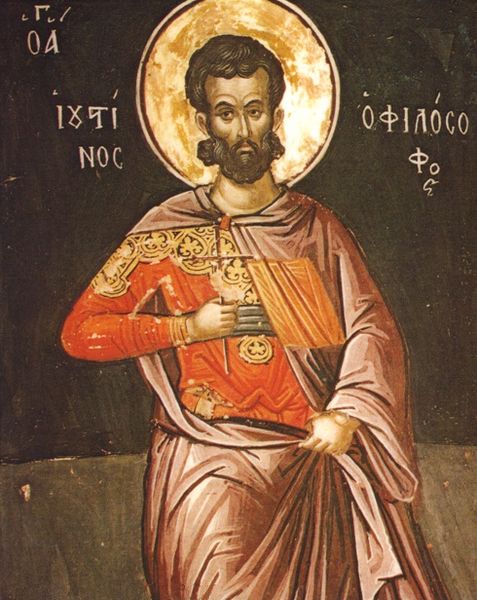It is no surprise, given the violence and destruction the enemy is wreaking in the physical world, that the Church would likewise be under vicious attack. I’d like to address some questions readers have about professional Catholic blogging, and before I begin, here’s a passage of Scripture I think sets the right framework for us:
3 Whoever teaches something different and does not agree with the sound words of our Lord Jesus Christ and the religious teaching 4 is conceited, understanding nothing, and has a morbid disposition for arguments and verbal disputes. From these come envy, rivalry, insults, evil suspicions, 5 and mutual friction among people with corrupted minds, who are deprived of the truth, supposing religion to be a means of gain.
Some time ago I received an e-mail from the general editor of a reputable orthodox Catholic publisher, complimenting me on a piece I’d written here at Patheos and asking me if I had any doubts about or conflicts with the Catholic faith. He wrote:
Loved the article. I really appreciated the good humor coupled with catechesis.
I am curious about your general perspective on Church teaching – is there anything you disagree with or struggle with?
I replied:
I’m glad you enjoyed it!
I’ve got absolutely no disagreements or struggles with Church teaching, other than the usual problem of making myself live up to my ideals. I’m sympathetic to those who do have difficulty with the faith, though, and I certainly try to write knowing that I’ve got a secondary audience of non-Catholics and barely-Catholics eavesdropping on the blog.
I see my primary mission at Patheos as being the support team for the faithful-middle of Catholics who want to follow Church teaching, but who are constantly being pushed away from the faith by friends, family, and the pressure of the wider culture, and who don’t always have the words to explain why we believe as we do. I try to give people the words they need to make sense of their faith and share it with others.
I guess with the mixed readership, it’s really a twofold mission: Keeping people from veering to the edge of the narrow road, and offering a way out of the ditch for those who have fallen off of it.
That’s what I do here and elsewhere in my work as a writer and teacher, whether it be online, on paper, in the classroom, or in ordinary life. My absolute standard for evaluating my own writing and anyone else’s is: Is this work consistent with the Catholic faith?
I’m obviously not afraid to get all First Things on you and run a guest piece from a non-Catholic writer who has something relevant to say to my readers that is consistent with the big-C Catholic faith. My JenFitz_Reads twitter account includes Catholic and non-Catholic work, and often includes links I don’t agree with entirely, but which do contain ideas worth knowing about. But in all things, the goal is always and every time to point the reader towards a more Catholic understanding of the world.
That’s my background. I say that so you understand the standard I am setting as I answer other questions that have been posed lately about Catholic blogging.
Q: Why would a faithfully-Catholic writer publish with non-Catholic, inter-faith, or heterodox venues?
Some Catholic writers won’t do this, and those writers have no need to justify such a decision. It behooves those of who do publish on places like Patheos to justify our presence among the infidels, as it were.
The answer is simple: We’d like there to be a Catholic voice in the public forum.
This is why you’ll see faithful Catholics in the bylines of major secular newspapers and magazines, publishing with secular publishers, or appearing on popular mass-media radio or television shows.
The decision to accept a job for a non-Catholic or even a heterodox-catholic venue is not a blessing of every bit of content that venue produces, nor even a blessing of the overall tone and aim of the place. It’s not a suggestion that you, the faithfully-Catholic audience, would do well to watch or read at such places. Be selective in the media you consume and how much of it you consume.
One of the advantages of blogging, however, is that my readers can read my work here at Patheos without having to sift through or pay for any other content — in that way, it’s similar to writing books. If I publish in a traditional magazine or newspaper, or behind the firewall at a pay-to-read publication, you the reader have to buy in all-or-nothing. Here on Patheos, you’re free to be selective about which columns you read, and subscribe only to those you find most beneficial.
Your soul is invaluably precious. There’s no obligation in the Christian life to browse around unguided. It’s okay to err on the side of caution and read only those columnists that you learn about from links at 100% reliable sources. When you find a columnist you like, subscribe to their blog via e-mail or Feedly. Doing so lets you build a completely faith-friendly online magazine that builds up your spiritual life.
See below for my short list of good places to read that won’t steer you wrong.
Q: Is the Catholic Channel at Patheos 100% faithful to the Magisterium of the Catholic Church?
Good question. I don’t read everything that gets written on the channel, and I don’t personally know all the other Catholic bloggers here. I don’t even know who they all are (because I’ve never looked).
I do know that the Catholic Channel has always been home to certain writers who are both keen to be authentically Catholic and also fond of probing around the edges of the narrow road to see just how far it goes. That’s a practice that will sometimes land you in the ditch.
I also know that we have writers who tend to emphasize a certain contrarian response to popular orthodox-Catholic culture, and thus have a knack for making themselves sound like complete heretics when really no, they are not, that’s just their gift.
I furthermore know there are also writers like myself who will sometimes openly engage in theological speculation, and other times in our ignorance speculate without even knowing we’re speculating.
We likewise engage in rank punditry, in which we take a position on a question which Catholics of good will are free to disagree about. Patheos isn’t your catechism class.
All that said, I’m not above calling out so-called Catholic theologians, writers, and others who use their position to assert claims contrary to the Catholic faith. You should not be afraid of doing so either. When someone’s just plain wrong, prove them wrong. Please.
I’d suggest you do so with as much decorum and unassailable logic as you can manage, because otherwise you end up looking sorta dumb. I hate it when that happens.
Q: Why are Catholic bloggers such awful people?
Do you listen at Church on Sundays? We public Catholics are just as wretchedly in need of our Lord and Savior as anyone else. Some of us come across as very holy on the Internet, but really we aren’t, I promise you. Some of us splash our sins publicly, and in private are better people than you’d suspect. And there a few public Catholics who really are saints.
The willingness to speak about the faith in public is not a declaration that we are holy, it’s a declaration that God is holy.
I strongly encourage you to read only those sources which help you grow in the faith, and avoid those which either lead you astray or provoke your weaknesses. I encourage you, when you read someone whose work is particularly edifying, to resist the urge to assume you’re reading the writings of a saint. You might be or you might not be, you really don’t know.
Q: How do you get paid?
Different publications pay freelance writers in different ways. Books usually pay via royalties. The author gets a percentage of sales, so the more the book sells, the more the author earns. Magazines and newspapers usually pay a modest lump sum and that’s it, and then the publication keeps or eats the difference between what it cost to pay the writers and what came into the coffers via subscriptions and advertising revenue.
FYI: When I’ve written for an online magazine I’ve been paid as for a paper-magazine. So just because you read something for free online doesn’t mean it’s a blog. Some of what you read in the professional Catholic new media are true magazine-type arrangements, and some of them are blogging-type contracts.
Paid blogging is a bit of a hybrid between books and magazines. Like magazines and newspapers, the bulk of the revenue for the publication comes from the support of advertisers. Unlike paper-based magazines and newspapers, online sources are much less constrained in how many words they can afford to print. There’s thus an advantage in taking a risk on less-popular writers, so long as they generate at least enough traffic to pay for server space.
As a result, the typical arrangement is that the writer gets paid based on the page-views and/or advertising clicks on their own personal writing. There are different ways this gets structured, just as book or magazine contracts vary in their structures. You don’t need to worry, though, that The Vicious Heretic over on the Apostate Channel is getting a percentage of my page-views, and therefore you can’t click my article. You the reader only fund the writers whose work you read.
(Patheos Inc., just like every other publication in the whole world, only survives as a viable business because they are generating revenue from somewhere — so yes, clicking on me does pay the behind-the-scenes people who make it possible for me to write here. When you click on my personal site, you indirectly help to pay the people who keep that server running. When you join my blog discussion group on Facebook, you help support all the people who keep Facebook running. I don’t actually own my own servers anywhere, I’m not technical that way.)
Keep in mind, as I describe this, that a lot of Catholic writing gets done for free. Because we have other motivations than pure profit, many of us will contribute to a book, magazine, or blog at no charge, in those situations where our state in life allows (or even requires).
We public Catholics tend to keep quiet about it because we don’t want to undercut the necessarily-paid work that is needed to pay the mortgage and grocery and medical bills that keep Catholic speakers and writers alive, but many of us do have a multi-tiered salary rule. I have a personal rule that if your diocesan newspaper or parish bulletin wants to run a reprint off my blog, that’s a yes, no charge. I can’t afford to give away all my writing all the time, but I do some pro-bono writing and most other Catholic writers do as well.
This is the same as the way other professionals donate some portion of their services to good causes. Most Catholics serve their own parish by doing some work at no charge that they might also do for pay in other contexts.
–> Please do not pester Catholic writers for free work, just answering requests sucks up time they need to spend supporting their family or religious order. But don’t assume that everything you see in print is a pixel-colored goldmine. It just isn’t.
FYI, most Catholic blogging is done for free.
Q: Which are the very best Catholic blogs out there?
Of course humans are fallible, but of everything in my feed-reader, these below have proven consistently, solidly, faithfully Catholic over the years:
- Amy Welborn
- Marc Cardonella
- Jimmy Akin
- Domenico Bettinelli
- Melanie Bettinelli
- Darwin Catholic
- Bearing Blog
- Adam’s Ale
- Aggie Catholic
- Bethune Catholic
- Daria Sockey
- Catholic Icing
- Julie Davis
- Will Duquette
- In the Light of the Law
- Reflections of a Paralytic
- Community in Mission
I’ve left off a lot of excellent sources but which tend to ignite sparks here and there, because I know that for many people, social media is a near occasion of the sins of anger and rash judgement. The short list is written with that particular concern in mind.
The shortlist isn’t a canonization or a fullproof guarantee. Julie Davis engages the wider culture extensively, and you probably shouldn’t watch every movie she watches. One of the great things about Julie’s blog is that she sifts through the noise to bring you the true, beautiful, and good so that you don’t have to.
I’ve also undoubtedly left off some must-reads in my haste to quick slap up a few names to get you started. Feel free to add your own recommendations over at the discussion group. But this shortlist are all writers who won’t steer you far wrong, even if you are the sort who needs to be very selective about what you read. Among the mega-players, Word on Fire would be my go-to.
I’m not saying don’t reading anything else. I read all kinds of other stuff, and recommend it generally.
Q: What’s today’s picture?
That’s St. Justin Martyr. The image is via Wikimedia, from the public domain.

















